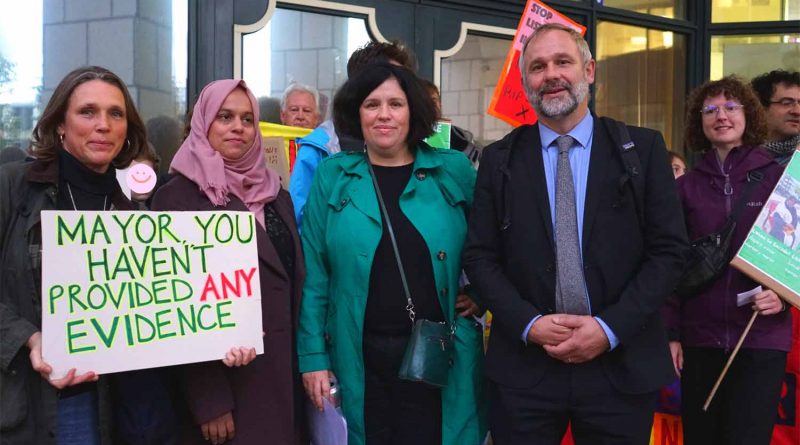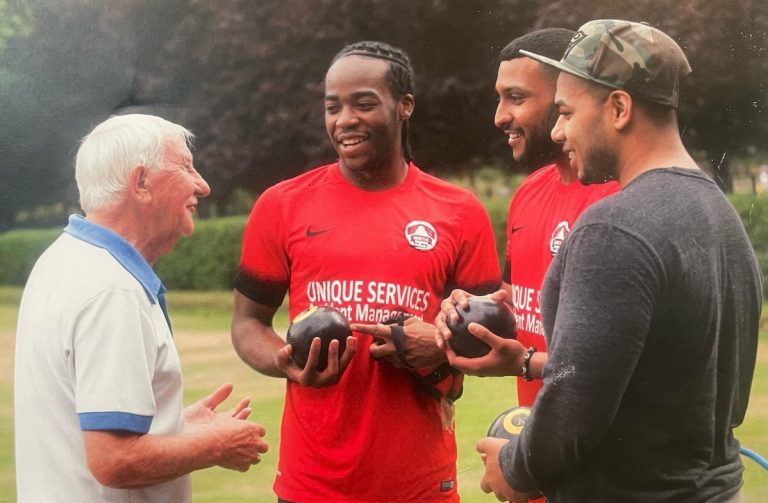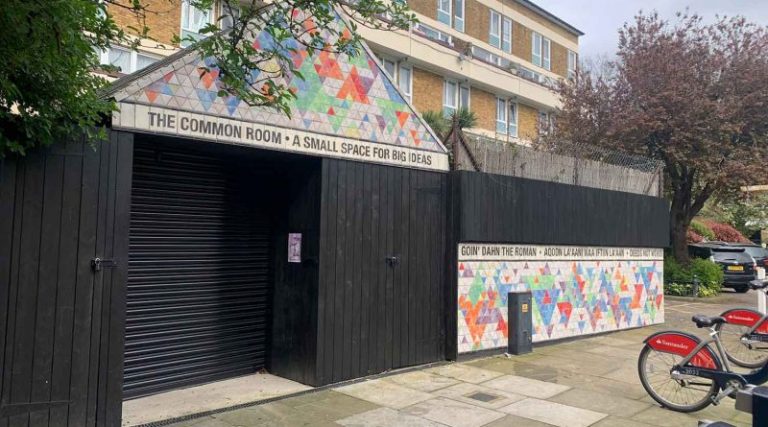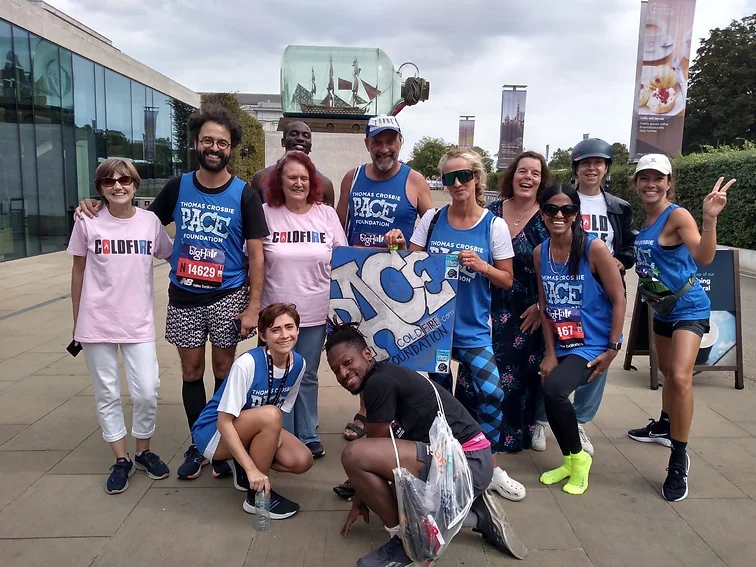Petition to reinstate Liveable Streets Scheme rejected by Tower Hamlets Council
Save our Streets petition of 3,094 people rejected by Aspire Councillors who cite ongoing consultations, vowing to be an administration that listens.
Tower Hamlets Council members voted against a petition to stop the reversal of Liveable Streets schemes across the borough in a Council meeting on Wednesday 5 October.
The petition, submitted by Save Our Safer Streets Bethnal Green campaign group, called on the Council to stop plans to scrap Liveable Streets schemes in Tower Hamlets and listen to the community about ways to improve the new street layouts.
The petition ran from 8 August to 25 September 2022 and amassed 3094 signatures, the second highest for any Tower Hamlets e-petition.
Voting on the petition followed party lines, with all 24 Aspire Councillors voting in opposition.
Prior to the debate, Save Our Safer Streets published its own in-depth analysis of emergency service response times, air quality and traffic congestion using Freedom of Information requests (FOIs) and public domain data.
In brief, the data published for Bethnal Green reveals that there has been no increase in emergency service response times or journey times on boundary roads attributable to Low Traffic Neighbourhoods (LTNs) and that air quality across Tower Hamlets has significantly improved since 2019.
In her opening speech to the Council, Jane Harris from Save Our Safer Streets called on the Council to engage with local residents and organisations, and to publish information collected in its consultations.
Harris said: ‘We think you can’t be inclusive unless you recognise the benefits and fundamentally recognise the realities. Don’t make decisions based on rumours, make them based on the reality of 3,094 people.’
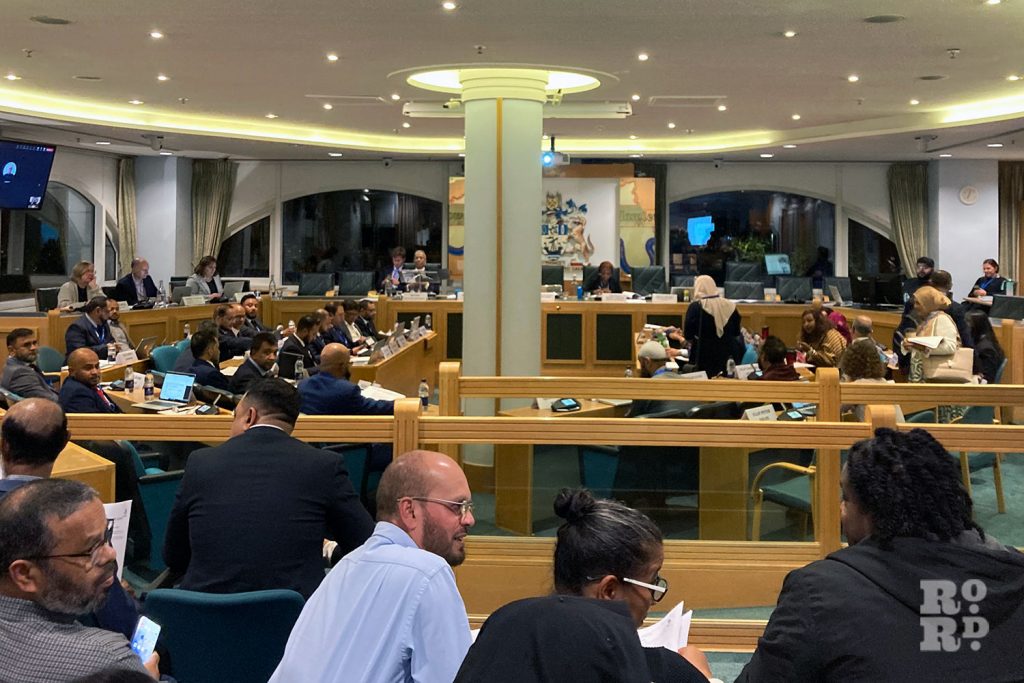
Kabir Ahmed, Aspire Councillor for Weavers, blamed the previous Labour administration for implementing LTNs that blocked off neighbourhoods and segregated communities.
He said in the debate: ‘The Mayor and his administration are a listening administration,’ vowing that there is currently a process in place, and a full consultation will be published when officers have finished compiling the evidence.
Councillor Ahmed added: ‘This motion only addresses one side of the argument, 3000 people is 1% of the borough’s population.
‘I value everybody’s personal submissions of their own testimonies and I want to reassure you that we will be considering these testimonies when making decisions which will be laid out in the near future.’
However, Nathalie Bienfait, Green Party Councillor for Bow West pointed out: ‘Contrary to the claim that this is an administration who listens, Bow residents were not fully consulted before the Antill Road filter was removed in July 2022.’
Speaking after the meeting, Bienfait said: ‘The Council didn’t have anything to say about the fact that all of their claims about increased emergency response times, pollution being higher on boundary roads and increased journey times have been absolutely disproved by the evidence released by Save Our Safer Streets campaign.
Harris said: ‘[Aspire Councillors] are still choosing to repeat unfounded claims about issues with the schemes and never mentioning the real benefits.
‘It was extremely disappointing, to have our efforts belittled and dismissed by Aspire Councillors who seemed not to have heard anything we have been saying. Their response to us all along has amounted to stonewalling.’
Kabir Hussain, cabinet member for the environment, reiterated Councillor Ahmed’s assurances that the Council is ‘closely considering the survey responses and looking at further information.’
However, no further details were given about what data is being collected in the ongoing consultations, or about the Council’s plans to tackle the climate emergency.
As Bienfait said: ‘What we were trying to do with the debate is instead of making it an ideological debate, we were trying to make it about the consultation and about the evidence.’
‘We know that truth is on our side. We need to see quantitative evidence which the Council hasn’t put out … so that’s a big red flag for us.’
The Council has not yet published the findings of the consultations carried out this August in Brick Lane, Wapping and Weavers, and Bethnal Green.
However, those in favour of reversing Liveable Streets schemes maintain that Mayor Rahman is honouring his manifesto promise to reopen our roads.
As Bethnal Green resident Nick Fiveash said: ‘An election is the best form of consultation. If further consultations need to be done, then I think there needs to be very strict rules.
‘We were very concerned about people outside the borough voting in previous consultations back in 2019.’
Mayor Rahman, who didn’t speak in the petition debate, announced later in the meeting that he would not be removing road closure restrictions from the Wapping bus gate.
The removal of the gate was included in the Council’s proposals to ‘Reopen Our Roads’ even though it was not part of the Liveable Streets Programme but was installed using TfL bus priority funding two years earlier.
The Mayor continued: ‘While I remain entirely committed to my manifesto pledge to get our roads open and moving again, I take seriously the views and evidence provided by residents and local stakeholders on specific closures.’
Save Our Safer Streets campaigners and Councillor Bienfait welcomed Mayor Rahman’s announcement about the bus gate.
As Harris stated: We are pleased about the bus gate, but we’re incredulous to hear that he based his decision on evidence and consultation results when he still hasn’t published any. This doesn’t feel like a listening approach to us.’
Councillor Bienfait added: ‘Now that they’ve made the decision that they’re going to keep the Wapping bus gate, surely it’s good governance to publish the information they’re basing the decision on … there needs to be evidence to back everything up.’
Fiveash, who is a member of Bethnal Green Streets For All campaign group opposing the implementation of Liveable Streets schemes, was strongly against the physical roadblock on Bethnal Green Road which he said traps and inconveniences residents.
However, he pointed to ANPR cameras, such as the one installed on Antill Road, as a potential compromise to stop through traffic while allowing residents and emergency services to move around freely.
ANPR cameras use automatic number plate recognition to monitor passing traffic, which can be used to stop cars from outside the area using residential side streets as shortcuts, a practice known as rat-running.
During the meeting Councillor Bienfait also cited the possibility of ANPR cameras that could offer a bespoke solution fulfilling Mayor Rahman’s manifesto pledge without wreaking havoc on local residents or the climate.
And yet, the ANPR traffic filter that was in place on Antill Road in Bow was removed by the Council in July 2022 without any consultation.
Addressing this issue in the meeting, Councillor Ahmed said: ‘Antill Road was an experimental traffic order, we have removed the closure and we have agreed to monitor it over the next few months. We welcome any comments from residents regarding any of the schemes.’
Save Our Safer Streets campaign group said it was unsatisfied by the Council’s response and would still consider a potential legal challenge, although it hoped it wouldn’t come to that. The group has raised £17,240 to date through crowdfunding in preparation for the challenge.
Roman Road LDN reached out to Tower Hamlets Council for further comment but received no reply.
If you liked this article, read the previous piece in our Liveable Streets series about the Antill Road consultation.

